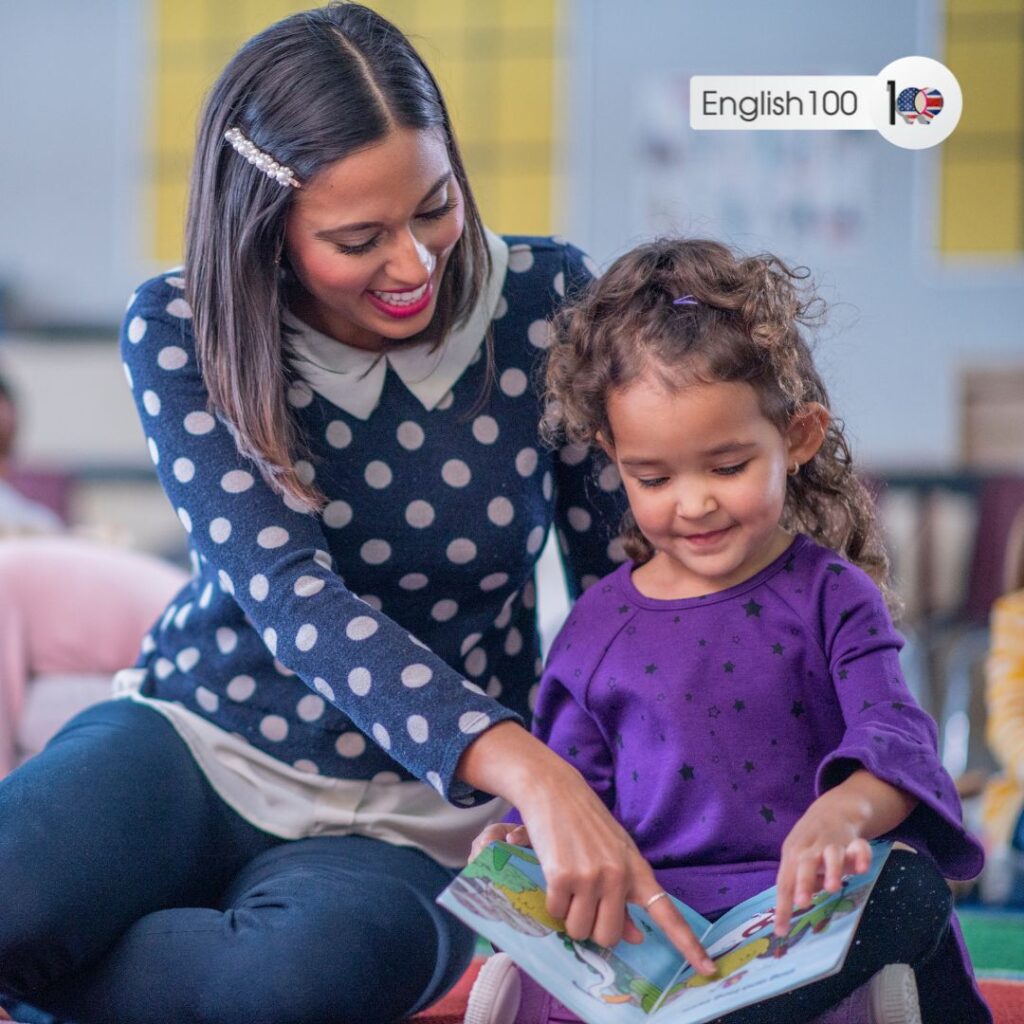Have you ever had a funny conversation about the quirks and idiosyncrasies of the English language? Whether it’s the confusing spelling rules, the endless homophones, or the strange idioms, English can be a source of endless amusement. In this article, we will dive into some of the funniest conversations people have had about the English language.
Funny Conversations about English Language

There are many stories in English to read but if you are looking for something different and fun? Here are some authentic funny English conversations examples from our daily lives:
Conversation 1:
Ali: Did you know that the English language is so weird?
Karam: Oh, definitely! It’s like a crazy mix of rules and exceptions.
Ali: And don’t even get me started on pronunciation! Why is “ghoti” pronounced as “fish”?
Karam: Haha, I know, right? It’s like the English language is playing a never-ending game of hide and seek with us.
Conversation 2:
Lily: What’s with silent letters? They’re just there to confuse us.
Eva: Absolutely! It’s like the English language enjoys watching us stumble over words like “colonel” and “Wednesday”.
Lily: But you know what’s even funnier? Homophones! They’re like secret agents, pretending to be the same word but with different meanings.
Eva: Oh, I couldn’t agree more! It’s like they’re trying to test our detective skills every time we read or write.
Lily: Well, at least we can laugh about it. English may be crazy, but it keeps us on our toes!
Eva: That’s true! It’s a language full of surprises, but it definitely keeps life interesting.
In this busy world, people run here and there for making money. End of the day they felt very tired and stressed. In such situations, these kinds of humor dialogues and funny conversations surely change their mindset and keep them energetic. 1
Conversation 3:
Mother: Did you know that the English language is full of funny quirks?
Daughter: Really? Like what?
Mother: Well, for example, why is it called a building if it’s already built? Shouldn’t it be called a built?
Daughter: Haha, that’s true! And why do we park in a driveway but drive on a parkway?
Mother: I know, right? It’s like the English language loves to play tricks on us.
Daughter: And why do we say “I before E, except after C,” when there are so many exceptions? It’s more like “I before E, except when it’s weird!”
Mother: Absolutely! English rules can be quite confusing. But hey, at least it keeps us on our toes and gives us something to laugh about.
Daughter: That’s true. It’s always an adventure navigating the English language.
Conversation 4:

Teacher: Good morning, class! Today, let’s have a little fun with the English language. Can anyone tell me what the word “queue” means?
Student: Oh, I know! It’s the letter “Q” wearing a fancy hat!
Teacher: (laughs) Well, that’s a creative interpretation, but not quite. In English, “queue” actually means to form a line or wait in line.
Student: Oh, I see! So, when I’m waiting for my turn at the ice cream truck, I’m in a “queue scream”!
Teacher: (laughs) That’s a good one! But we usually just call it a queue. Now, can you think of any other funny English words?
Student: Hmm, how about “onomatopoeia”? It sounds like a dance move!
Teacher: (laughs) That’s a great one! But actually, “onomatopoeia” refers to words that imitate sounds, like “buzz” or “boom”.
Student: Oh, I get it now! So, when I say “plop” after dropping my ice cream, it’s an onomatopoeia of my disappointment!
Teacher: (laughs) Exactly! You’re catching on quickly. English can be a bit tricky, but it’s always good to find humour in it. Keep up the great work, everyone!
Conversation 5:
Manager: Hey, did you know that the English language is full of quirks and oddities?
Employee: Oh, really? Like what?
Manager: Well, for starters, why do we park our cars in a driveway, but drive on a parkway?
Employee: Haha, that’s true! And have you ever noticed how “abbreviated” is such a long word?
Manager: It’s crazy, right? And why do we say a “pair of pants” when it’s just one item?
Employee: I’ve always wondered about that too! And what’s the deal with “pineapple”? It’s neither a pine nor an apple!
Manager: It’s mind-boggling! And don’t get me started on silent letters, like the “b” in subtle or the “k” in the knife.
Employee: I know, right? It’s like the English language is playing a prank on us!
Manager: Absolutely! But despite all its quirks, mastering English is definitely worth it. It opens up so many opportunities for communication and understanding.
Employee: That’s true. Plus, it gives us plenty of material for funny conversations like this!
Manager: Haha, indeed! Keep up the good work, and let’s continue navigating the wild world of English together.
Employee: Will do! Thanks for the laughs, boss!
What is funny English conversation dialogue?
“Communication – the human connection – is the key to personal and career success.” — Paul J. Meyer.
Funny conversations about English language can provide entertainment and humour while also highlighting the quirks and idiosyncrasies of the English language.
These daily English conversation dialogues often involve wordplay, puns, and humorous misunderstandings, making them enjoyable for language enthusiasts and those looking for a good laugh.
Whether it’s a witty exchange between friends or a comical interaction between language learners, funny short conversations about the English language can bring joy and amusement to anyone who appreciates the intricacies of this widely spoken language.
Benefits of English conversation practice:
1. Improved Communication Skills: Learning to speak English through conversation helps individuals develop strong communication skills. They become more fluent in expressing their thoughts and ideas, which enhances their ability to connect with others effectively.
2. Increased Confidence: Regular practice allows them to overcome the fear of making mistakes and boosts their self-assurance in using English in various social and professional settings.
3. Enhanced Vocabulary: Conversational English exposes learners to a wide range of vocabulary and idiomatic expressions. Through conversations, individuals can expand their word bank, learn new phrases, and become more proficient in expressing themselves with clarity and precision.
4. Cultural Understanding: Funny conversations about English language provide opportunities to learn about different cultures. Engaging with native English speakers or individuals from diverse backgrounds allows learners to gain insights into customs, traditions, and perspectives, fostering cultural understanding and empathy.
5. Networking and Professional Opportunities: The ability to communicate effectively in English can lead to better job prospects, international collaborations, and global business connections.
There are many people who have a good hold on grammar but when it comes to daily English conversation dialogues, they start fumbling. But this situation can easily be avoided by learning some basic daily life English dialogues and practising those. 2
6. Personal Growth: Learning to speak English through conversation promotes personal growth. It encourages individuals to step out of their comfort zones, overcome language barriers, and develop a broader worldview.
7. Access to Resources and Information: English is the language of the internet, and being proficient in it allows individuals to access a vast array of resources, information, and educational materials. It enables learners to stay updated, conduct research, and engage with global communities.
8. Travel and Tourism: English is widely spoken in many tourist destinations around the world. Acquiring conversational English skills enables individuals to navigate unfamiliar places, communicate with locals, and make the most of their travel experiences.
9. Academic and Educational Advantages: It facilitates better comprehension of English literature, enables students to participate actively in classroom discussions, and enhances their writing and presentation skills.
10. Personal Fulfillment: Lastly, learning to speak English through conversation brings personal fulfillment. It opens doors to new friendships, enriches cultural experiences, and provides a sense of achievement.
FAQ about funny English conversation:
1. How do you have a good English conversation?
- Be an active listener and show genuine interest in the other person’s perspective.
- Practice good non-verbal communication by maintaining eye contact, using appropriate facial expressions, and using gestures to enhance your message.
- Speak clearly and confidently, using proper grammar and vocabulary.
- Ask open-ended questions to encourage the other person to share more and keep the conversation flowing.
2. What is learning English conversation? – What is learning funny conversations about English language?
Learning English conversation is the process of acquiring the skills and knowledge necessary to effectively communicate in spoken English.
It involves developing the ability to understand and respond to various types of conversations, such as casual conversations, business discussions, and social interactions.
This includes learning vocabulary, grammar, pronunciation, and cultural nuances to be able to engage in meaningful and fluent conversations with native English speakers.
3. Where can I practice my English conversation?
You can practice your English conversation skills by joining language exchange groups or clubs, participating in online forums or chat rooms dedicated to language learning, finding a language partner or tutor, attending language classes or workshops, and engaging in conversations with native English speakers whenever possible.
Additionally, there are numerous language learning apps and websites that offer conversation practice with native speakers.
4. How can I learn daily conversation in English? – How can I improve my daily English conversation dialogues?
- Practice speaking English every day with native speakers or language exchange partners.
- Listen to English podcasts, news, or audiobooks to improve your understanding of the daily conversation.
- Join English conversation clubs or language meetups to practice speaking with others.
- Use language learning apps or online platforms that offer daily conversation exercises and interactive lessons.
5. How do you speak a good English conversation?
- Practice regularly:
- Expand your vocabulary:
- Listen actively:
- Use proper grammar and pronunciation:
- Be confident and take risks
In conclusion, funny conversations about English language in a funny and engaging manner provide a unique and enjoyable way to learn and improve one’s speaking skills. Incorporating humour into language learning, not only makes the process more entertaining but also helps to alleviate any apprehension or fear that may come with learning a new language.
These funny conversations serve as a reminder that language learning can be enjoyable and that making mistakes is a natural part of the learning process. So, let’s embrace the humour and have fun while learning to speak English!
References:
- Admin, W. (2018, April 20). 25+ Very Funny Dialogues Between Two Persons In English (New Conversations) – WoR. WoR. https://worthofread.com/latest-funny-dialogues-between-two-persons-english-new-conversations/
- Shilpa. (2023, April 20). Daily English Conversation Dialogues: Category Wise Dialogues for Everyday Conversations – The Fluent Life. The Fluent Life. https://thefluentlife.com/content/daily-english-dialogues-everyday-conversations/
